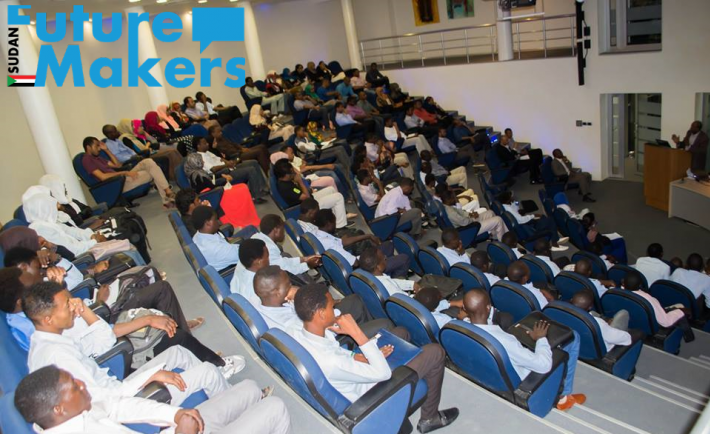When I first came to NDI as a Mandela Fellow and was introduced to its goals and activities, I realized that I had come to the right place to help me achieve my dream of changing Sudan. I founded an organization called Sudan Future Makers Organization (SFMO) in 2012. SFMO is a national network of youth-led sustainable development and business for peace projects, sharing a common vision of making the country a better place. Together we are attempting to remedy our country’s maladies, but there’s still a long way to go. My fellowship at NDI will allow me to study the situation in Sudan from a global perspective and plan future projects in creative and professional ways. We have many strategic questions for our next big moves in SFMO, with the help of the NDI team, I'm hoping to find some answers.
Sudan became independent from the Anglo-Egyptian colonization in 1956. Its administration was controlled mainly by the elite British foreign office, not by the military as with most other British colonies. The British left Sudan with a good, though limited, educational system. The University College of Khartoum (UCK), for example, was part of London University, a sister of its counterpart University College of London (UCL). Sudan Railways was the longest and most efficient in Africa and the Middle East, and Sudan Airways was one of the best in the developing world and the civil service was up to the British standards. The Gezira agricultural Scheme was the world’s largest irrigation scheme under one administration. Now all this has almost gone. But why?
After independence the Sudan entered a vicious circle of tribal, sectarian and religious strife that eventually led to a civil war, ultimately splitting the country into Sudan and South Sudan.
The Sudan that I grew up in suffers from bad governance, poor social services and inadequate infrastructure. International intervention did not help. Instead, the world was so angry with the Sudan that the Security Council imposed political and economic sanctions that harmed the peaceful majority more than the trouble makers and the few in power.
It was in this context that we decided to take the positive step of establishing a new non-governmental organization (NGO), SFMO, which is an attempt, not a solution, to remedy our country’s malaises through collective citizen action. We -- the people of Sudan -- were still hopeful we could make change and fill the gaps where our government had failed.
SFMO works primarily by bringing together young activists, entrepreneurs, NGOs and non-political organization leaders to foster unity, provide opportunities for capacity building and create meaningful networks. Our network now comprises over 60 projects in all 18 states of Sudan. In eastern Sudan, we organized a radio show promoting girls’ education; in the Darfur region, a group of our young artists are currently leading a social movement towards conflict resolution and peacebuilding through our project the “Arts for Peace”; in the north we extend knowledge on HIV and sexually transmitted diseases (STDs) prevention and control; and in central Sudan we opened classes to combat illiteracy.
Now, do we think change is possible?
Can we bring thousands of leaders just like the Mandela Fellows and have them working together for the best of our country?
Lolly Daskal, a prominent leadership trainer says: “when we can dream together, we can change the world.” I believe that when we can dream together we can change Sudan for the better. This is my dream for Sudan. I also believe that what I gain from my six-week stay at NDI can help me realize that dream.

